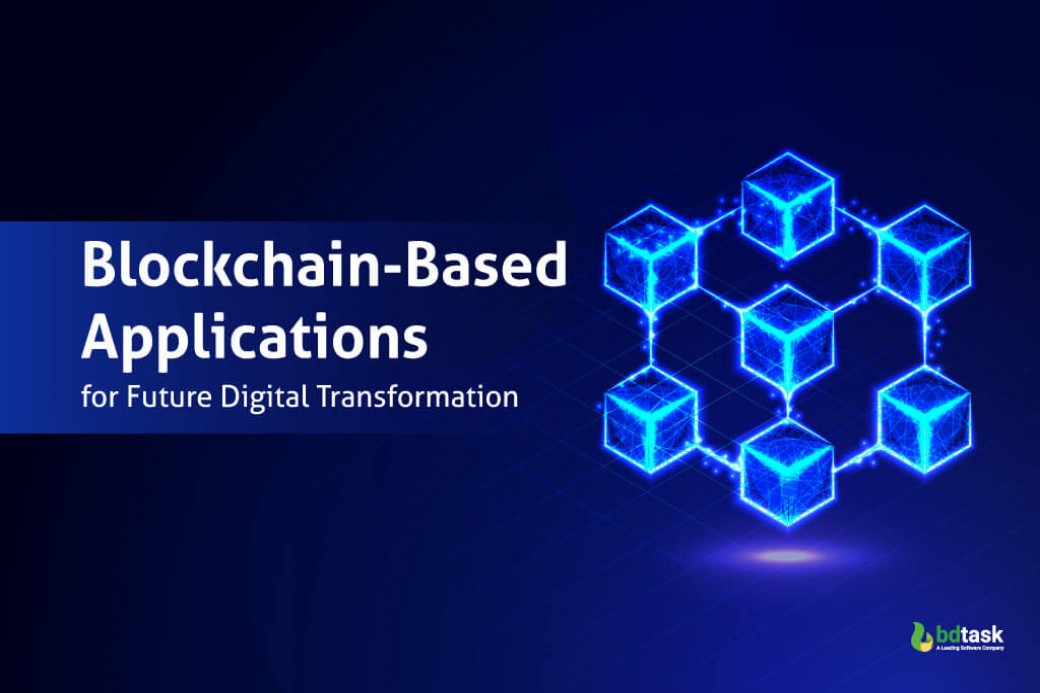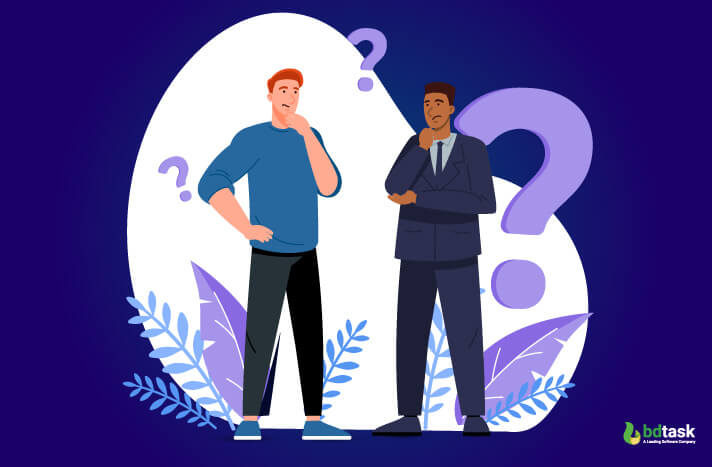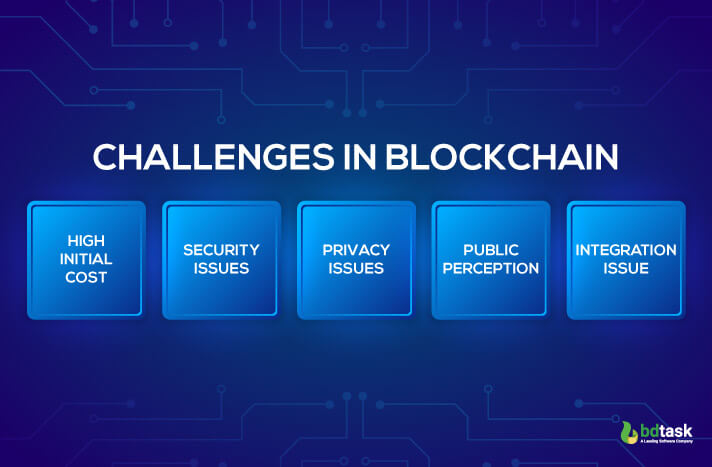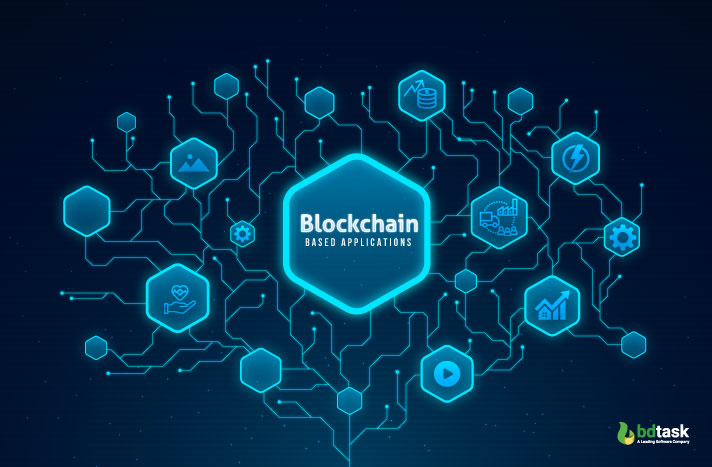Blockchain Based Applications for Future Digital Transformation

Blockchain technology has the potential to revolutionize how everyday life is conducted. It is a new way of storing and sharing information based on distributed ledgers. This technology allows for secure, transparent, and tamper-proof transactions. This technology can be used to create apps and websites that will change the way we live our everyday lives. Blockchain-based applications can help people connect and share information and track assets. By using these applications, businesses can save time and money while reducing their risk of fraud. Today I will discuss the challenges and impact of blockchain-based applications on the transformation of the future digital world.
Do we need Blockchain?
In Blockchain, many people are involved in a digital public ledger. Many people do not trust a third party and keep their data private; the best option would be to go for a Permission Blockchain. Permission Blockchain also allows controlling the permissions in Blockchain software. The applications of blockchain technology have already been making a good impact on the digital world. If we people can do the proper use of blockchain technology, we can get all the advantages it has to offer. We really need blockchain to make a more advanced human race.

If a traditional database system can meet our needs, we can secure that database instead of implementing a new Blockchain system. But to get the best security and to keep ourselves updated with the modern world we should start using blockchain.
Challenges in Blockchain
Blockchain is definitely a next-generation technology that has a lot of potential. This technology is now used for many kinds of industries, not just Cryptocurrency and NFT. This technology still has many improvement areas. We need to face the challenges to ensure successful Blockchain adaption and growth.

Following are some of the challenges in Blockchain for its implementation and adoption -
The initial cost is high
Blockchain miners need high-end computers, which is expensive. The blockchain network requires a large amount of electricity to run. This electricity consumption is also very costly.
According to The Digiconomist's Bitcoin Energy Consumption Index, it takes 1,449 kWh, or about 50 days of typical US household electricity, to complete one bitcoin transaction.
Blockchain security issues
Many people believe that blockchain is a fully secure technology. Technically this belief is not wrong. Blockchain is also vulnerable to many security issues, like a 51% attack where a group of miners controls more than 50% of the network's mining hash rate. Phishing attacks on the blockchain are increasing every day. Phishing attempts frequently target people or workers for businesses.
Another significant issue with blockchain security is the vulnerability of blockchain endpoints. Hackers can target devices and monitor user behavior to steal the user's key.
In a Sybil attack, hackers generate numerous fake network nodes. Using those nodes, the hacker can obtain majority consensus and disrupt the chain's transactions. Hackers can obtain a majority consensus by doing a Sybil attack and stopping the chain's transactions.
So, blockchain is not free from cyber threats at all.
Blockchain privacy issues
Anyone can view the transactions recorded on a Blockchain if it is open to the public. The public availability of information goes against long-standing conventions, especially in the legal, financial, and healthcare industries where privacy protections are typically required.
Public perception of Blockchain
The biggest drawback of blockchain has been how the general public perceives it. People do not consider it to be a typical aspect of functioning. Most people don't think blockchain technology will be around for very long.
Integration with legacy systems
Another significant obstacle to the adoption of Blockchain is the integration barrier with legacy systems. All conventional systems would utilize various models and data formats for storage and operate independently. The majority of these systems are closely coupled and would have very few Blockchain integration models.
If we can successfully face the above key challenges in Blockchain, we can implement this technology in our everyday life and adopt it successfully.
How Blockchain Based Applications Can Transform the Future?
Basically, blockchain is a shared database that allows multiple parties to access data and verify that data in real-time. Even though blockchain technology came into existence with Bitcoin, blockchain has a far-reaching potential outside of cryptocurrency. For the last few years, we have seen how artists are making money from Non-fungible tokens (NFT) based on blockchain technology.

It can transform the way we do things in numerous industries, including the following:
1. Government
Blockchain can benefit governments around the world in three ways:
Digital Voting with blockchain-based app
We can ensure that elections can be conducted securely and transparently by using blockchain technology. Government officials could count votes as they are submitted because each vote would be linked to a single ID, and it would be nearly impossible to create a fake ID. This means that, in some cases, you can learn the results of a crucial election just a few hours or so after the polls have closed. A fantastic example of a start-up using blockchain technology to enable an open online voting system is FollowMyVote. But regardless of how safe and open an election is, some voters will undoubtedly be dissatisfied with the outcome.
Transparent Budgeting
According to the Corruption Perceptions Index provided by Transparency.org, most of the world's states are regarded as highly corrupt. Blockchain technologies can make it possible for governments to make more environmentally friendly budget choices, thus reducing corruption and waste.
Record Management
The government, community organizations, insurance agencies, medical professionals, and family associations keep biographies and other personal information. Blockchain technology can significantly simplify the procedure of making and keeping these records.
2. Healthcare
Medical professionals, such as doctors and nurses, frequently lack a thorough understanding of each patient's medical history, which is a significant issue in the healthcare sector. This is because medical records are stored in separate corporate databases. This hampers their ability to offer practical healthcare solutions.
Blockchain technology can be used to allow multiple medical companies to access health-related info in real-time, and this info may include prescriptions, past doctor appointments, past surgeries, medical issues, and so on. In addition, secured data would be shared.
In practice, none of this information could identify any person specifically. An individual would have to be in a medical facility's system to grant full access to their medical history or a part of it.
3. Media and Entertainment
Media and entertainment is a sector where blockchain has many important implementation opportunities. There are three major blockchain-based media and entertainment applications-
General Media
The most well-known sources of media applications are already employing blockchain technology to fight fraud, reduce costs and facilitate the protection of intellectual property. According to a MarketWatch report, the global market for blockchain in media, advertising, and entertainment is estimated to reach USD 619.7 million by 2028.
Fan-to-artist direct payments
Blockchain-based apps can be used for artist payment or support. Social media users can support content creators through blockchain apps.
Streaming sites like Spotify, Netflix, and Amazon Prime can connect their streaming apps to blockchains for impressively quick and objective verification of streaming rights. They can ensure that artists receive prompt and transparent payment when their content is streamed.
NFT is one of the great applications by which artists are getting paid for their intellectual property. You can use NFT marketplace software to build an NFT marketplace and sell your unique digital property. You can also allow others to buy and sell their property on your marketplace and make a handsome profit.
Ticketing
Show organizers have to deal with the problem of not having access to information from their customers. If they are using blockchain technology, they can ensure that the ticket information they share with third parties is relevant and up-to-date. This would improve their ability to understand client preferences and better tailor events based on their preferences.
4. Real Estate
Most homeowners sell their house every five to seven years, and the typical individual moves 12 times during their lifetime. Blockchain-based applications can reduce paperwork, processing times, and costs in home buying, selling, and deal management by verifying financial information and providing complete transparency throughout the whole process. It offers a high level of security and is also completely transparent.
5. Supply Chain Management
Blockchain technology can allow for real-time monitoring of products as they move through each stage and location of a product supply network. It also allows various parties, including retailers, suppliers, and customers, to access this data as needed from one decentralized database that is controlled by just one company.
6. Finance
Using Blockchain-based applications in the Finance sector is one of the key factors in the digital finance transformation. Cryptocurrency usage is growing day by day. The world economy has seen how crypto has grown from the ground since the last decade. A blockchain can be helpful when applied to trade for the following reasons.
- It can guarantee greater transparency concerning governance.
- It can also help speed up transfer times.
- It can potentially decrease capital needs for investment opportunities.
- It can help reduce the risk of fraud and human error.
When paying a sum using an international wire transfer, the blockchain can reduce general costs associated with transfers by eliminating the need for banks to process payments manually.
For example, Banco Santander, a provider of financial services, employs blockchain technology to lower the number of banks in their financial network, enabling businesses and individuals to send money more quickly, securely, and effectively across borders.
7. Energy
Blockchain technology can simplify energy supply transactions and payment processes. It can also help automate accounting processes and manage assets. Blockchain also has applications in HDA verifications, emission allowances, and renewable energy certificates. Because of the exact tracking value, we can save a lot of power. Stakeholders can get transparent information without revealing their identites.
Conclusion
Blockchain-based applications are on the rise and represent a groundswell of change for businesses and individuals. It will transform the future digital world as well as our everyday life. With their potential to pseudonymize and secure transactions, blockchain applications offer an innovative way to streamline daily life. Although some initial challenges remain, these applications have the potential to have a significant impact on society as a whole. Blockchain Initiatives are committed to helping businesses and individuals explore the potential of blockchain technology and bring its benefits to everyday life.










